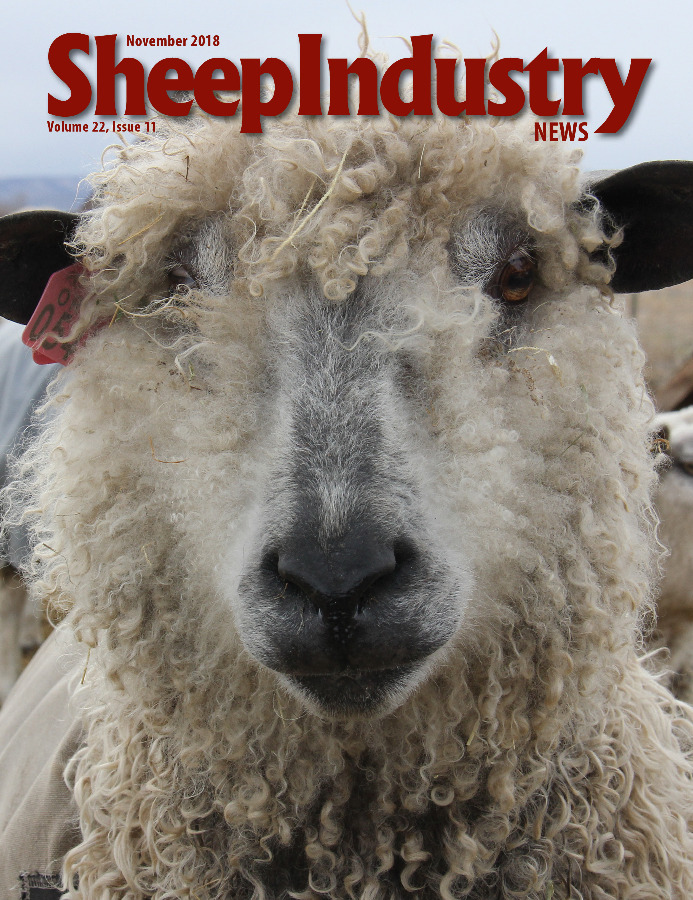
- November 2018
- President’s Notes
- Leading the Way
- ASI Announces Elections
- Lamb Chislic is Official Nosh of S.D.
- Guard Dog Program Supports Legal Defenses
- Raw Material Chronicles Woman’s Wool Industry Journey
- Around the States
- Nominations Open for ASI Awards
- VS Announces Reorganization Plans
- Market Report
- The Last Word
Around the States
Texas
Capra Lamb Certified by GAP
Capra Premium Dorper Lamb based in Goldthwaite, Texas, has become the first United States-based lamb company to receive the Global Animal Partnership’s 5 Step Animal Welfare rating and the highest rating ever issued to a commercial lamb program globally.
GAP, a non-profit 501 (c)3 organization based in Austin is one of the largest animal welfare certification labeling programs in North America. The GAP Certification process and labeling program makes it easier for consumers who care about the treatment of the livestock they consume to identify ethically raised animals.
The GAP’s 5 Step Animal Welfare certification process is comprehensive, taking into consideration the living conditions, emotional wellbeing, management, handling and care and diet of the animals for the entire life of the animal. To achieve Step 5 level, lambs and their parents must be raised on pasture for their entire lives. Ranches are thoroughly checked to ensure the animals are humanely handled and never receive any antibiotics, growth hormones or animal by-products. Lambs are also not castrated or tail docked.
GAP Executive Director Anne Malleau commented, “We’re incredibly proud of the work Capra Foods and their ranchers have done to achieve Step 5 certification. Their dedication to animal welfare is something we’re excited to be helping explain to their customers.”
Capra Foods Founder and Managing Partner Craig Jones said, “We feel very pleased that our farms have received the world’s highest ranking in animal welfare from GAP. Our group of family ranches throughout Texas put a lot of time and effort into ensuring we raise our animals as nature intended – 100 percent grass fed, free to roam on pasture and free from antibiotics.
“We feel motivated by both our personal values and by the increase in consumer demand from more discerning meat eaters who care about the welfare and diet of the animals they consume, and are willing to pay a premium for it.”
Capra’s ranchers raise Dorper sheep, as opposed to wool sheep. They sell their meat across America in health-focused retailers and high-end restaurants.
To find out more visit CapraFoods.com.
Montana
Roeder Named MSU Extension Sheep Specialist
Montana State University has hired Brent Roeder – an agriculture and natural resources Extension agent in Teton County – as the university’s extension sheep specialist.
Roeder, who has served in Teton County since 2015, received his bachelor’s degree in animal science from Texas A&M University and his master’s degree in ruminant nutrition from Montana State University. Roeder will begin his new position on Nov. 1.
Prior to becoming an extension agent, Roeder was a research associate in the Department of Animal and Range Sciences in MSU’s College of Agriculture. During this time, he worked with state sheep and range specialists in programs including Undaunted Stewardship, the Joe Skeen Center for Rangeland Research and the Montana Sheep Institute. Roeder also conducted large-scale trials to determine the interaction between livestock grazing and biological control agents on noxious weeds.
As the new statewide specialist, Roeder said he recognizes the vital role that sheep and wool play when it comes to wool products and Montana’s economic development.
“I see great opportunities for the industry to engage new producers and consumers through increased lamb consumption, using more sheep and goats for vegetation management, and improved opportunities for locally produced, value-added Montana products,” he said.
Cody Stone, director of MSU Extension, said Roeder’s appointment impacts the organization’s ability to work alongside regional sheep producers. “His knowledge, expertise and relationships within the sheep industry will allow him to make immediate impacts; we’re excited about having him.”
Michigan
Producers Encouraged to Answer Survey
All Michigan sheep producers are strongly encouraged to participate in the upcoming 2019 Michigan Flock Survey, an anonymous survey of the status of sheep and shepherds throughout all of Michigan.
It’s quick, it’s anonymous, it’s interesting, it’s important.
The inaugural Michigan Flock Survey will attempt to survey every sheep and shepherd within the state of Michigan in 2019. Even if you only have one lone sheep, you are encouraged to fill out the online survey. Registration is open from now until Jan. 1, 2019. After registration closes, producers in the state can respond to the survey in one of three ways: online, by email or over the phone. To register, visit MichiganFlockSurvey.com or call 517-250-0731.
This anonymous survey will help determine the demographics of Michigan’s shepherds, the vast range of breeds they are raising and what challenges they are facing.
The survey is being conducted by Aimee Swenson Buckley, a Ph.D. student in the Department of Community Sustainability at Michigan State University. This survey is the basis for her doctoral dissertation research exploring the breed diversity and market access of sheep in the state of Michigan. Swenson Buckley is a long-time shearer, and a small flock producer of lamb and wool in Southwest Michigan. She has spent several years traveling the world researching small scale and rare breed sheep production systems, often in remote regions.

